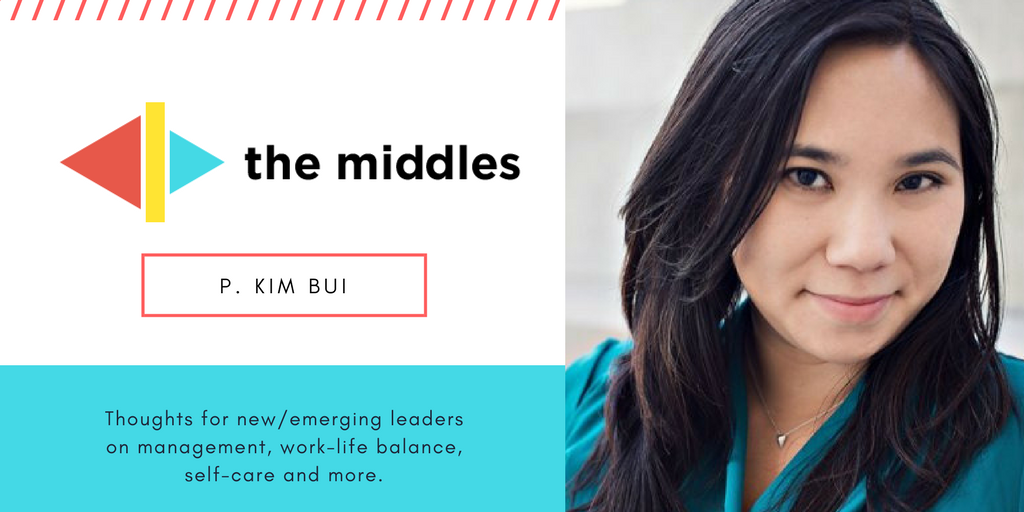It should be easy to say, “Hey, I don’t agree with that.” But, it’s not. Often disagreements come with emotional attachments, personal feelings that muck up a lot of things. But hey, we wouldn’t be good managers if we didn’t care, right?
I’ve been trying to take this to heart: “Conversations often go off track when we try to get someone to adopt our view or approach.”
I often catch myself saying “I hear you” or “I understand, but…” without really actually taking the time to hear or understand a person. I use it as an echo to get to the *real* point, which is my point, of course.
When I stop myself to ask a couple questions about why someone might think something, and look at their perspective, trying to come to a middle ground, things are a lot less contentious. It takes time, and I have to be committed to doing it, but it’s a show of respect to the person I’m speaking with.
I’m trying to retrain myself to say, “I think what you’re saying is XYZ, right? OK, well now that I understand a little better, what if we…” This is a psychology thing called “mirroring” that I actually learned about on an episode of “Property Brothers.” (It’s a great show, and I probably watch too much of it in the name of self-care.)
But what about if someone is flat out wrong? Unless you’re debating facts, how we approach or tackle things is never really right or wrong. How you phrase something in a story depends on the story teller. How you design a button depends on the designer.
When you’re running a team, or even just managing a person, the point isn’t to get your way all the time. The point is to have so many great minds in the room that together, you come up with the perfect solution. Otherwise, why have a team working on it?
One more half-formed thought: If the disagreement is a big one, perhaps about values or overall strategy, it pays to listen. Values and strategy shift with every person, but it’s important to remember how the value of something like “transparency” might be interpreted differently. For one, it might be transparency internally. For another, externally. That’s something to hear, and then to float as far up the chain as you can. Culture shift is hard. I am by no means an expert at it, but I think it begins with listening.
Remember, subscribe to The Middles newsletter, delivered once a week: themiddl.es.






Add Comment